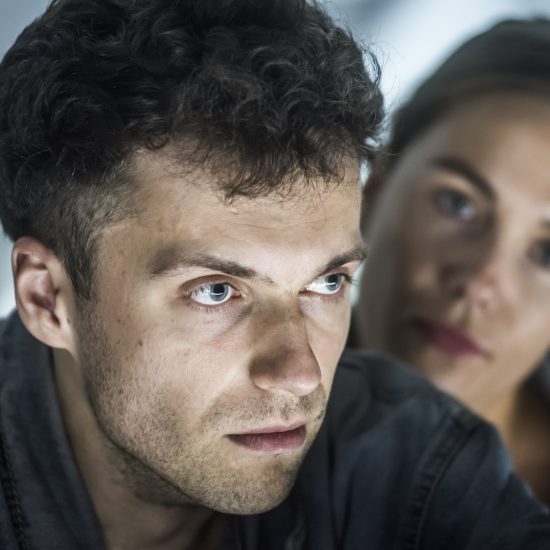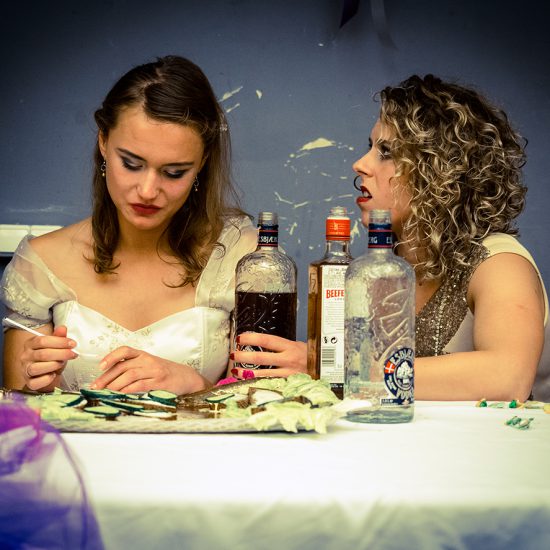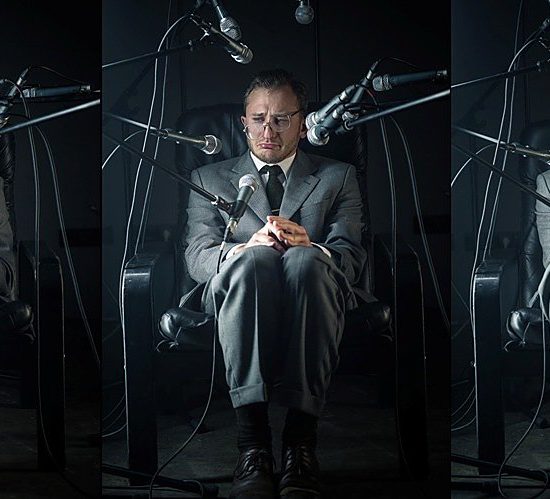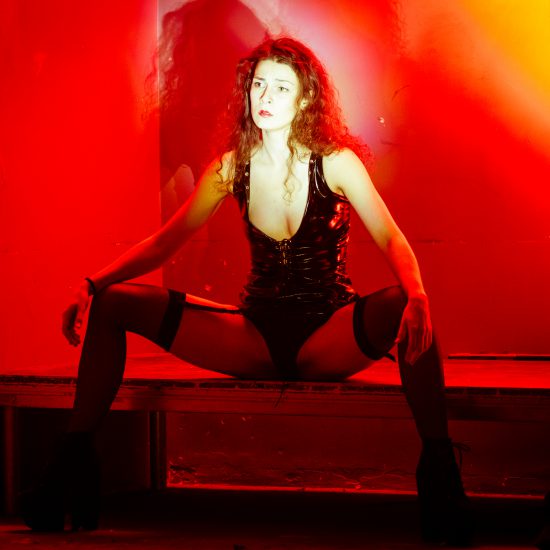Koršunovas Has Hit the Lower Depths
One of the most admired directors from the near abroad in Russia, Oskaras Koršunovas, has produced “The Lower Depths” in Vilnius and not only has created his best production in the recent years, but also has read the classical play in a totally unconventional way.
The new production is not at all similar to any of the famous Lithuanian director’s earlier works. Koršunovas has always been a master of a grand theatrical form. Even if his productions were performed in relatively chamber spaces, a scale far grander than chamber could still be perceived in them. In the director’s last productions, particularly in “The Taming of the Shrew” at the Alexandrinsky Theatre in St. Petersburg, these qualities of his style have grown if not to say to absurd proportions, then at least to a certain logically conceivable limit. Hypertrophied theatricality and a surfeit of theatrical means stifled the director’s thought or even, so to speak, crammed it up instead of bringing it out. And now, in “The Lower Depths” produced in his native Lithuania, (…) the director’s style has changed. No redundant details, no gaudy theatricality. On the contrary – a thrifty set design, a small hall, which maximally brings together the actors and the audience, the actors addressing the audience without much ceremony, as if they knew it quite well.
On the stage we see a long table covered with a white tablecloth. A row of chairs alongside the table. A great many bottles and glasses on the table. And that’s about it… Well, an unruly heap of boxes, which probably have contained those bottles, is stacked in the corner. From the outside, the action reminds us of something in between a press conference and a funeral wake. The characters mainly sit facing the audience and shoot remarks at them – confess their sins, sometimes melancholically ponder over the meaning of life, drink schnapps and snack on wafers reminiscent of the Holy Host. At a certain moment the bitterish drink is poured into faceted glasses and offered to the audience. And the spectators – some of them with great pleasure – realize that the glasses contain very real vodka instead of a mere prop.
The action is very minimal. And it is not surprising, as only Act IV of the play with very few events is presented. Such a move of the director in itself renders a totally new meaning to the work that has been produced a countless number of times. The last act of Gorky’s play becomes a kind of sequel to the famous play “Waiting for Godot” by Samuel Beckett. However, the sequel directed by Koršunovas comes out even more tragic and hopeless than the masterpiece of the world-famous Irishman. Beckett’s characters are waiting for Godot who will never come. There are almost no events there either; the action is evolving as if in a circle. The characters’ remarks are repeated like a stuck record. However, Beckett’s characters retain the hope that sooner or later the stranger who is also a welcome guest and whose name quite unambiguously rhymes with the word “God” will come. There is no hope in Koršunovas’ performance.
In Act IV, as we all know, Luka has already departed. We have not seen him. We only learn about him from the words of the tenants of the homeless shelter. And that is why the name of the mysterious figure insistently repeated by the characters basically coincides with the name of God. All their arguments about Luka, about what he is and if one can believe him, is undoubtedly a dispute about God(ot). So, what has the appearance of this Luka-Godot changed in the characters’ lives? Basically nothing. They are as restless as before and don’t have the slightest support in life. They are still immersed in life’s routine, in stinky details of life, and still try to drown their despair and disappointment with vodka. Excerpts of the well-known remarks and monologues from the first acts of the play inserted into the texts of Act IV lose their former vital power in a new context. All that remains of them is “words, words, words”.
In the final scene of the performance, the Actor, already having committed suicide, appears like a shadow or a ghost and, having stumbled onto the plastic boxes heaped in the corner, recites Shakespeare’s monologues. It would be the best simply to say the famous phrase by Shakespeare, “The rest is silence”. Incidentally, these words are absent in Koršunovas’ performance. The Actor in “The Lower Depths” is so important to the director also because his all productions of the recent years, including the unsuccessful ones, such as “The Taming of the Shrew”, have become a search for the meaning of theatre and an attempt to justify this art form, to which he has dedicated almost all of his conscious life. Here the justification of life itself rather than that of theatre comes to the forefront. Theatre becomes not so much a means of self-realization (and partly conceit, which cannot be escaped), as a means to discover the meaning of existence through artistic creation. It seems that only this can give at least some kind of meaning to existence.
It should be noted that the majority of talented European directors have switched from the theatre of mise en scènes, which helped many of them to achieve creative success, to the theatre of “creating a life” (the most distinct example of this kind is Hungarian Árpád Schilling, who has ultimately rejected the conventional stage practice and has embarked on para-theatrical pursuits). Koršunovas certainly does not reject the stage itself, but his evolution has apparently turned to this particular direction: from the theatre of mise en scènes to the theatre of “creating a life”, from spectacular tricks to thoughtful minimalism. Interestingly enough, in the history of theatre not a single director who has taken a similar direction ever returned to the same point. It is a one-way street, and we have a suspicion that it is the right way.
***
Marina Davydova, Izvestija.ru, 11 February 2011



